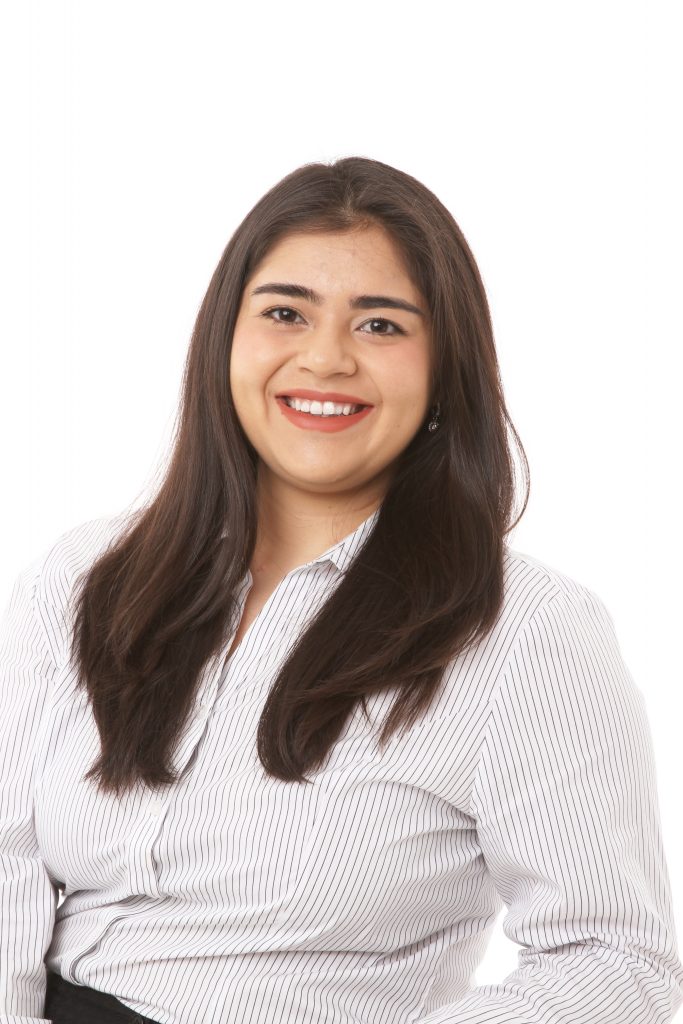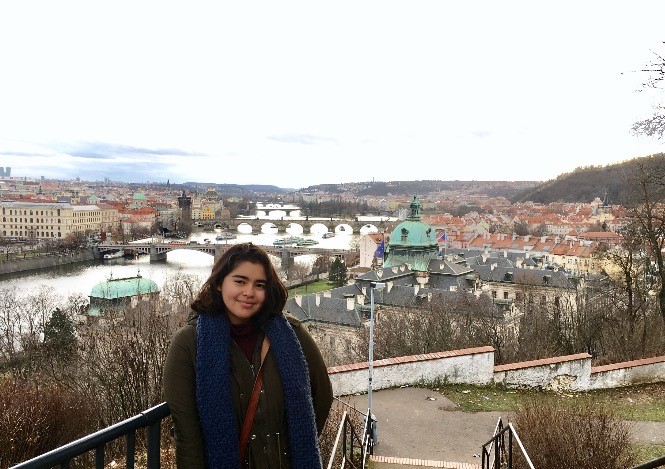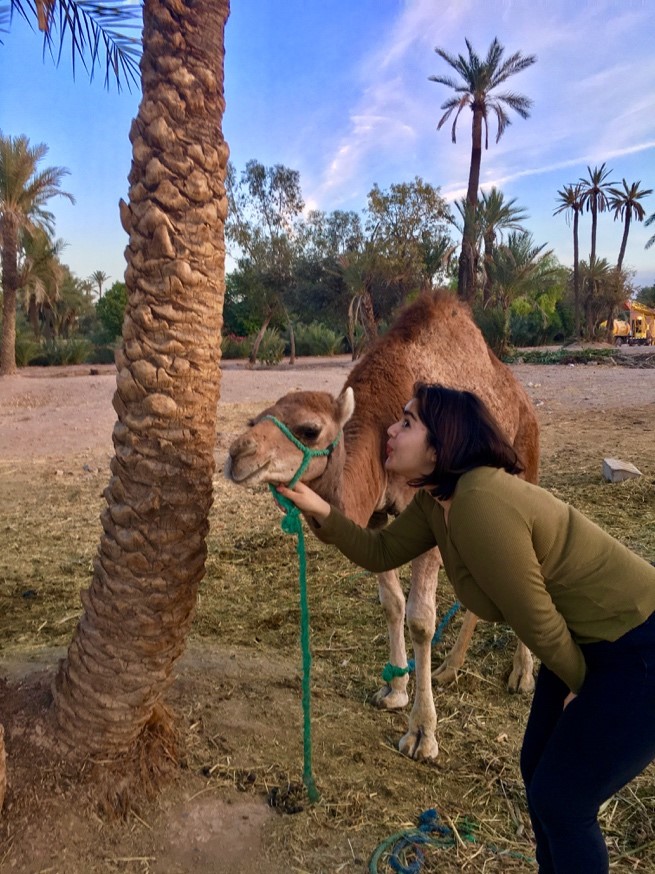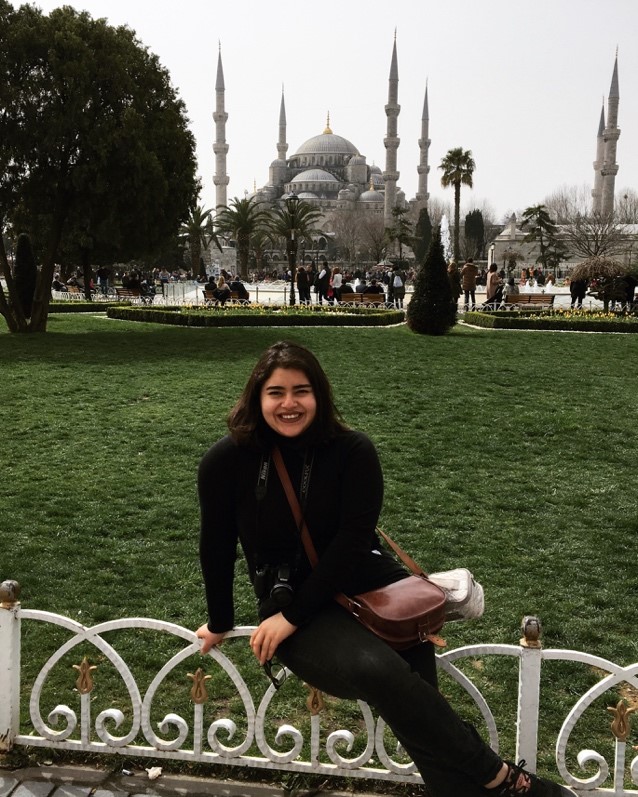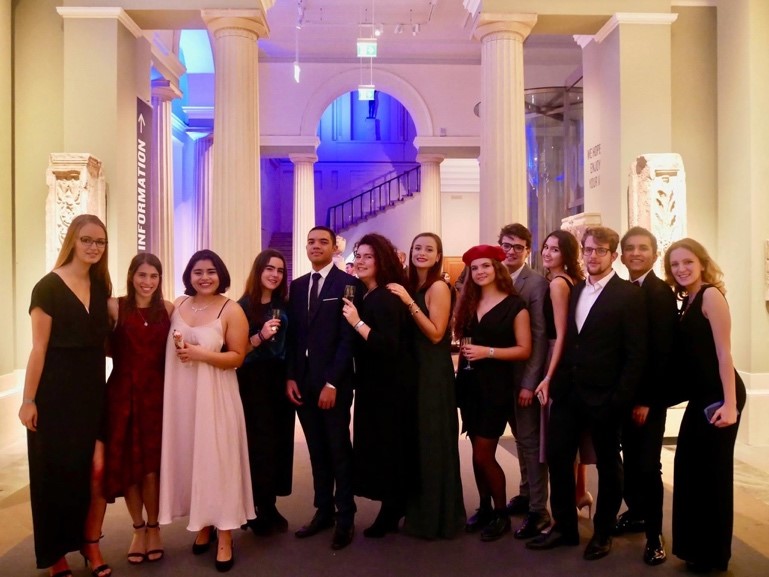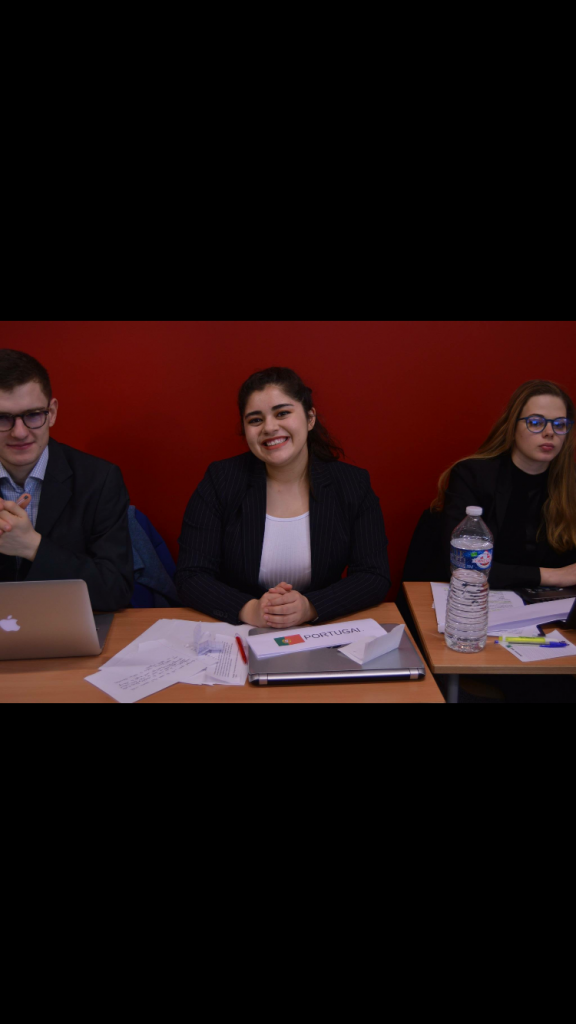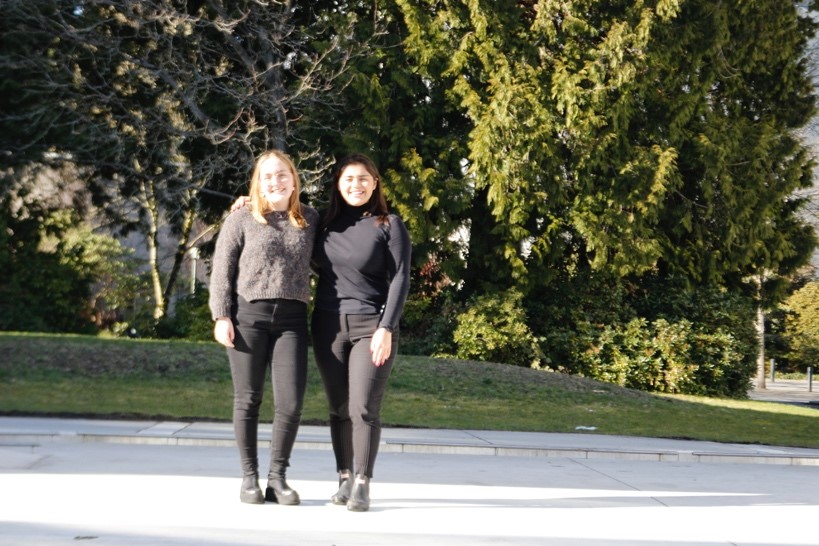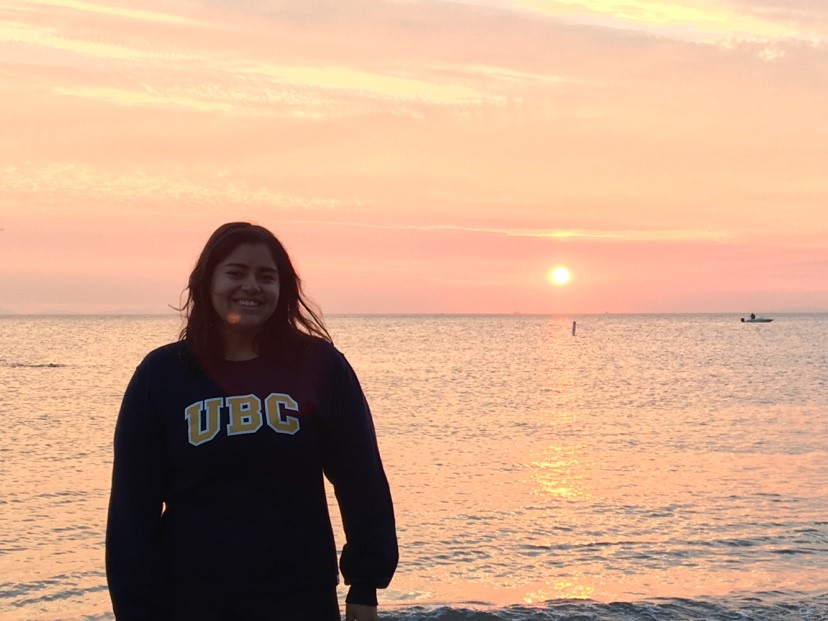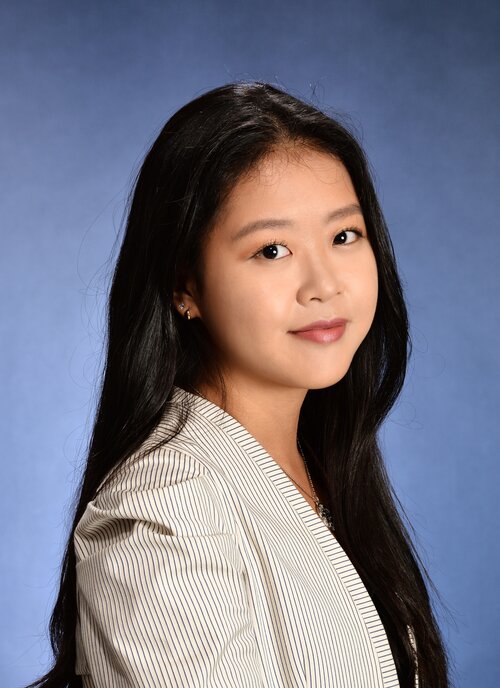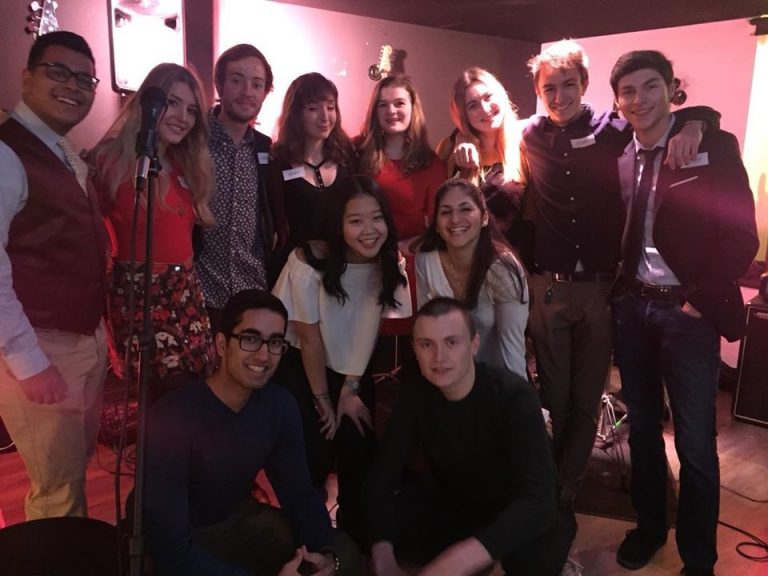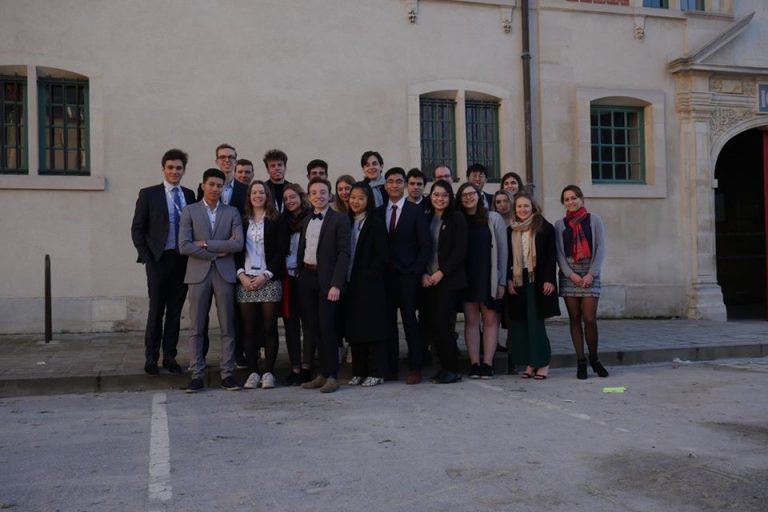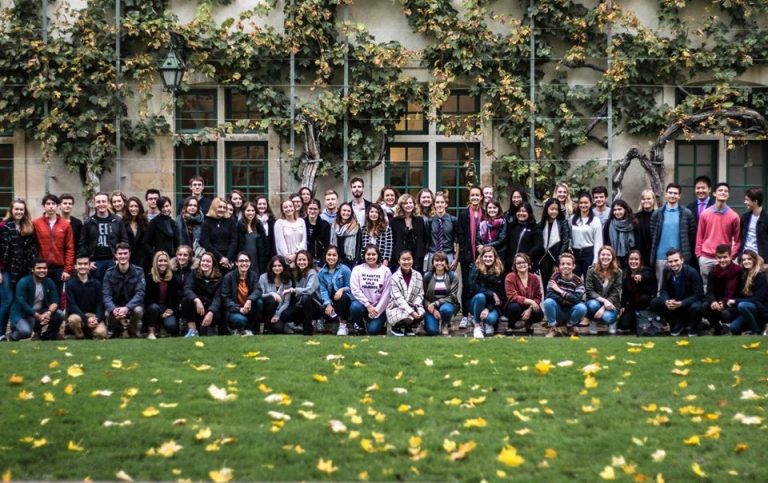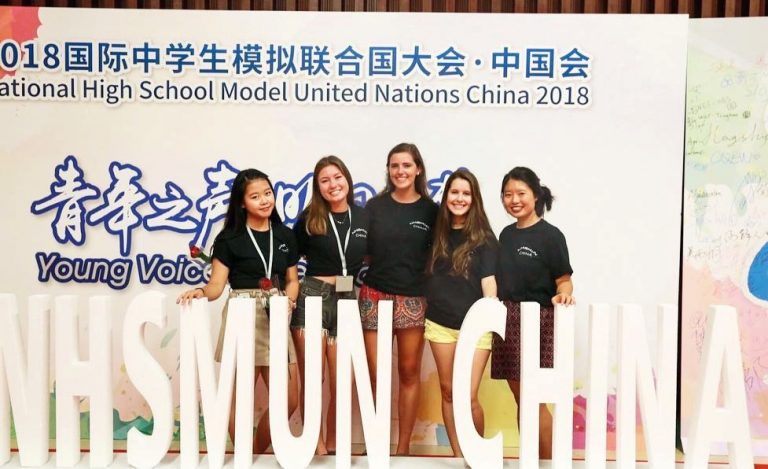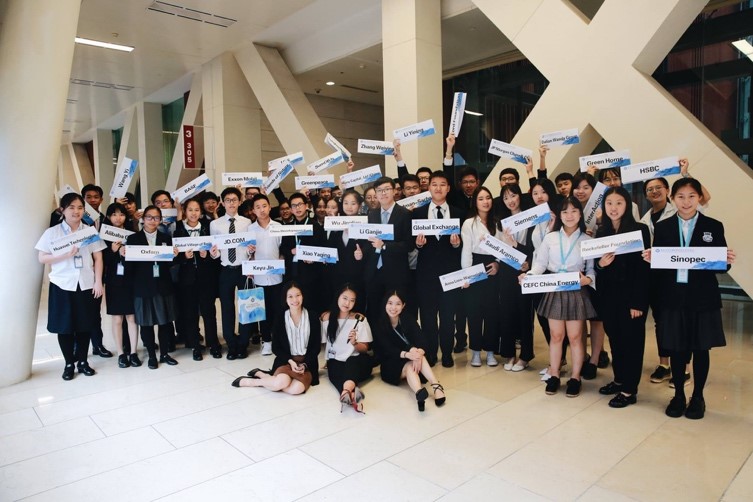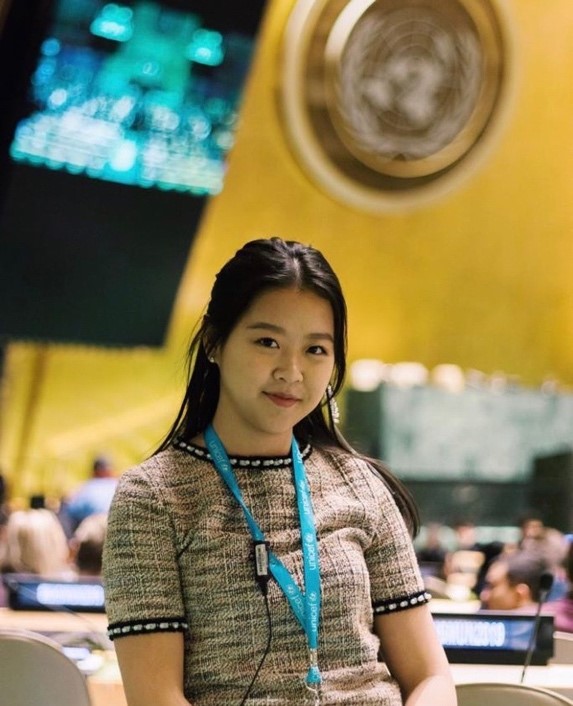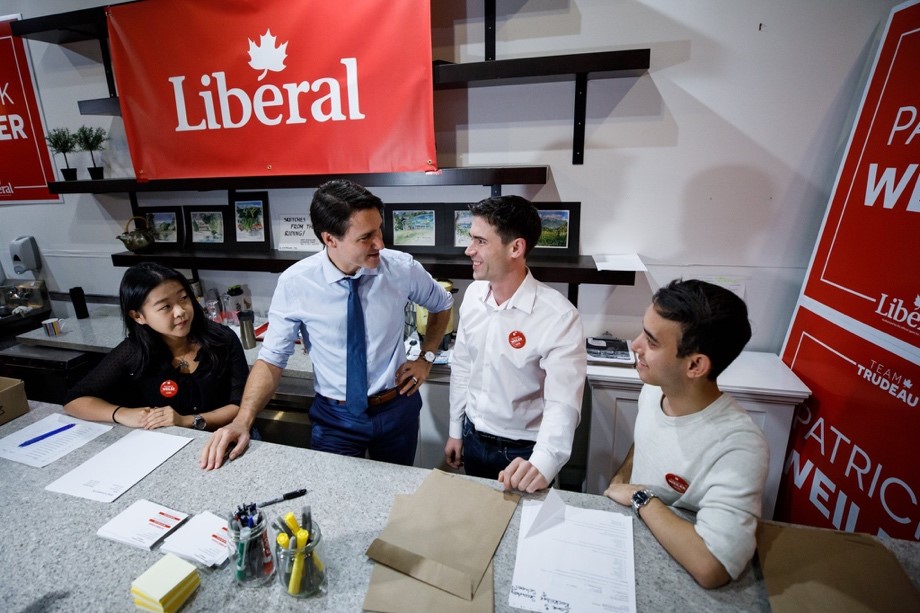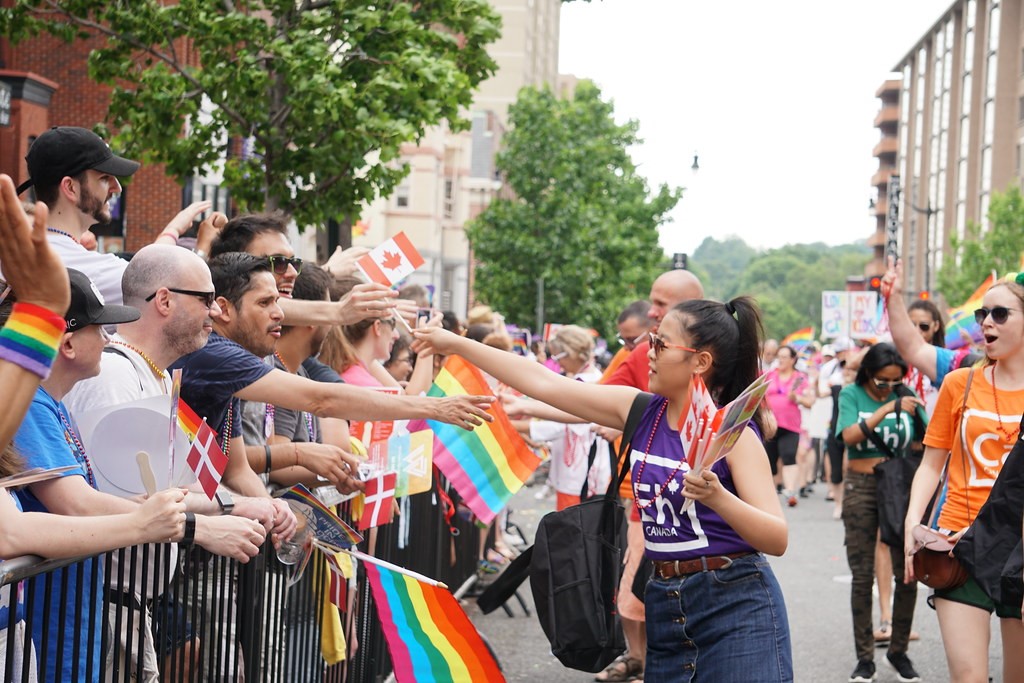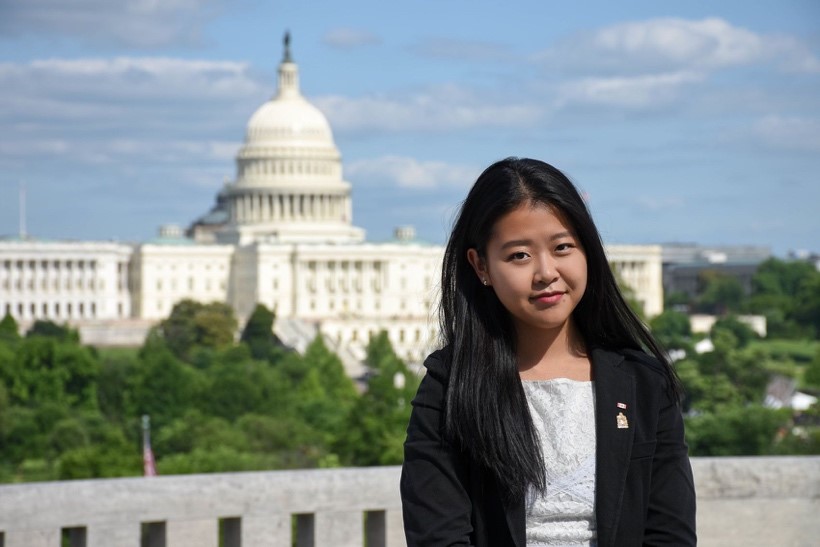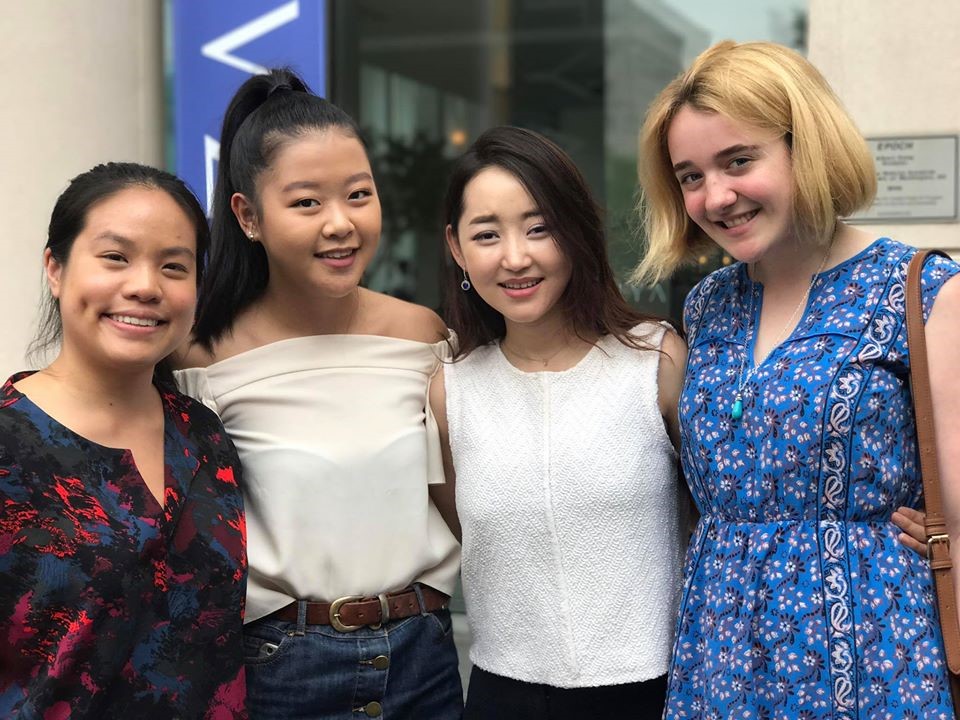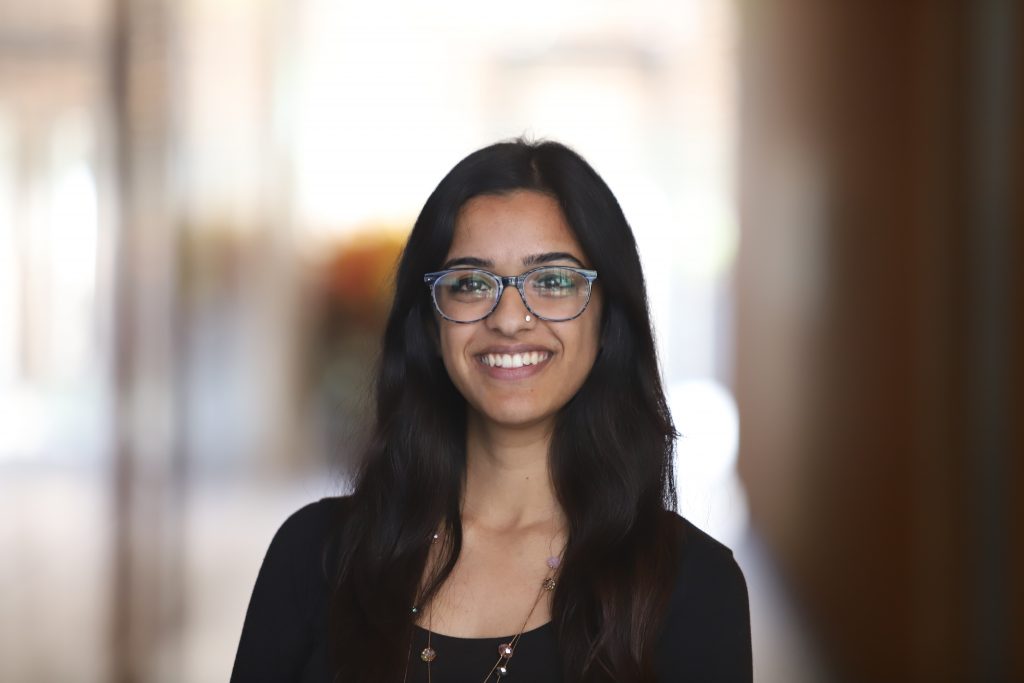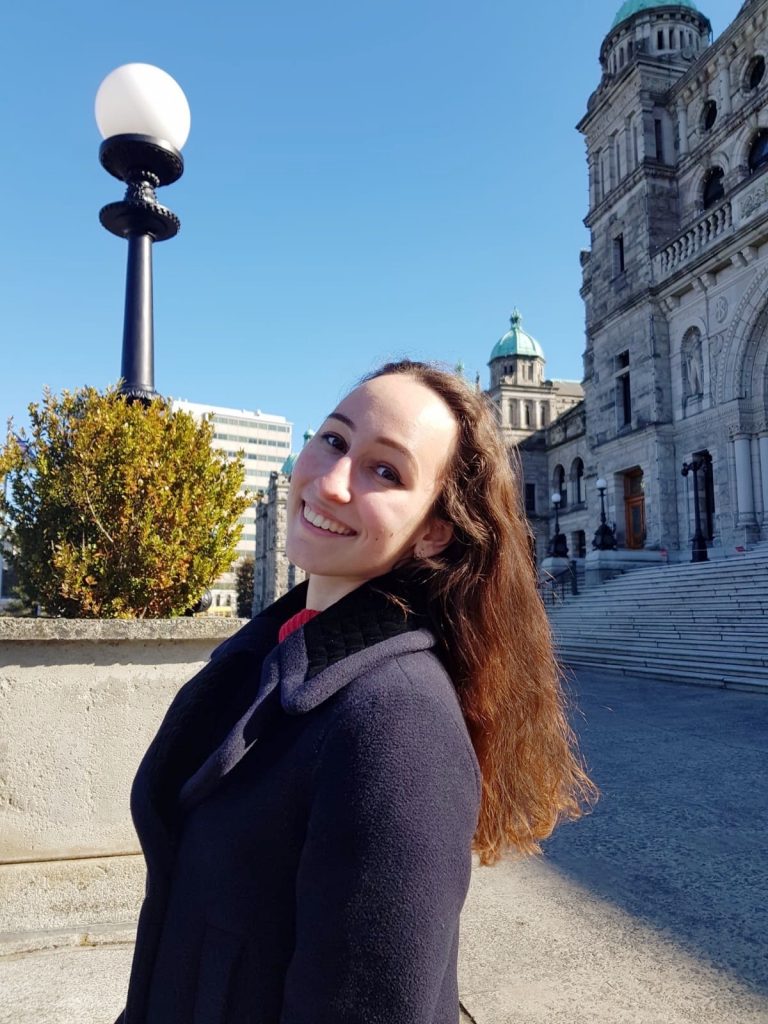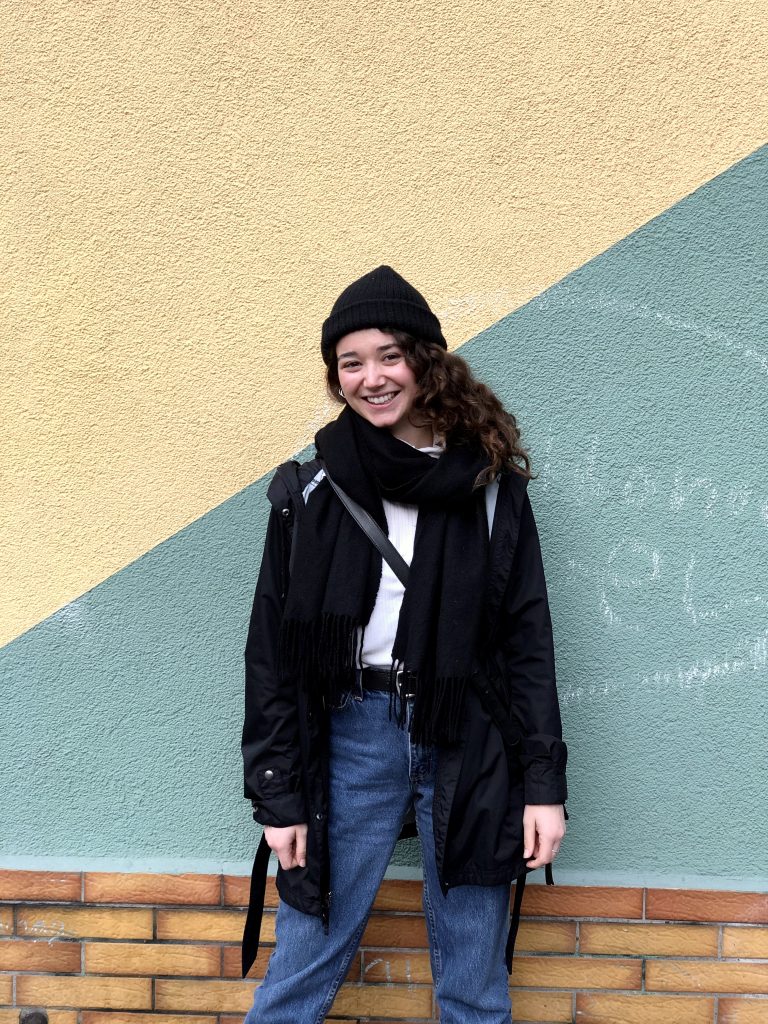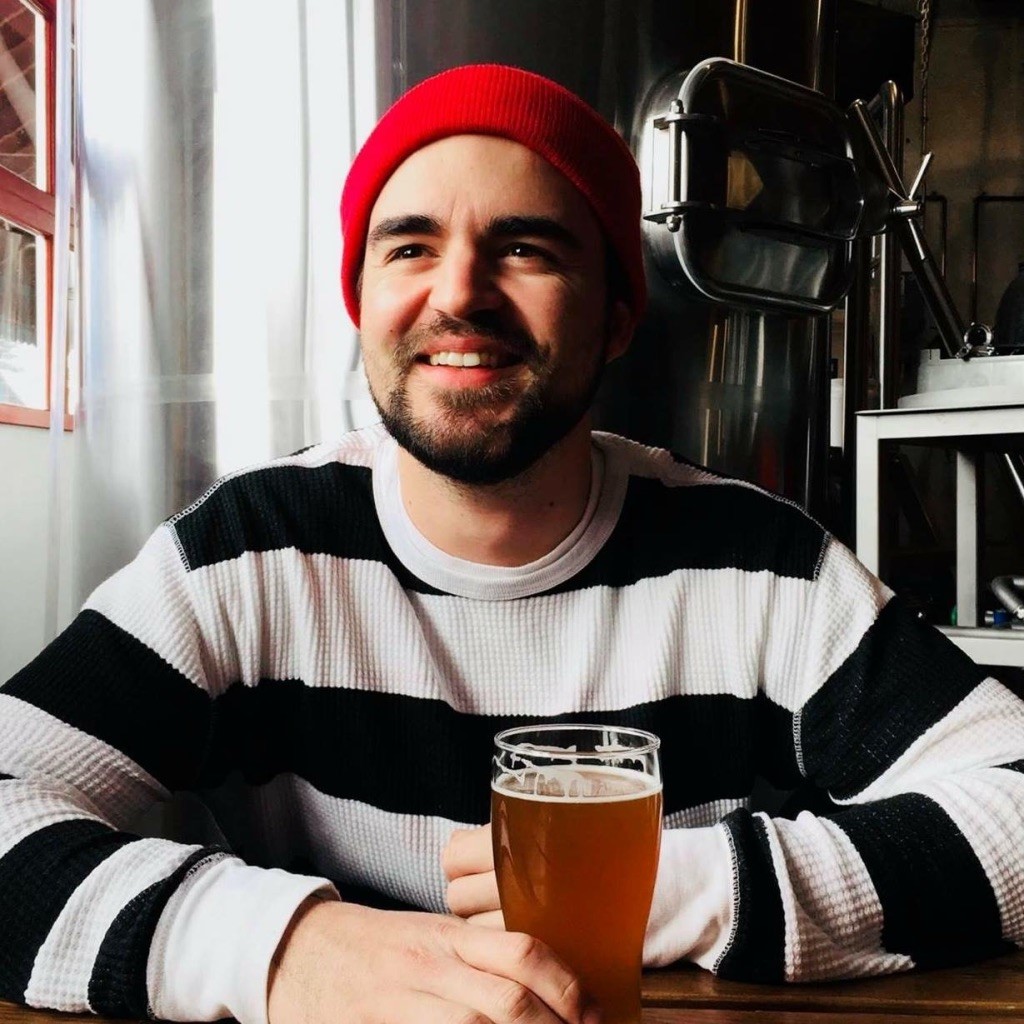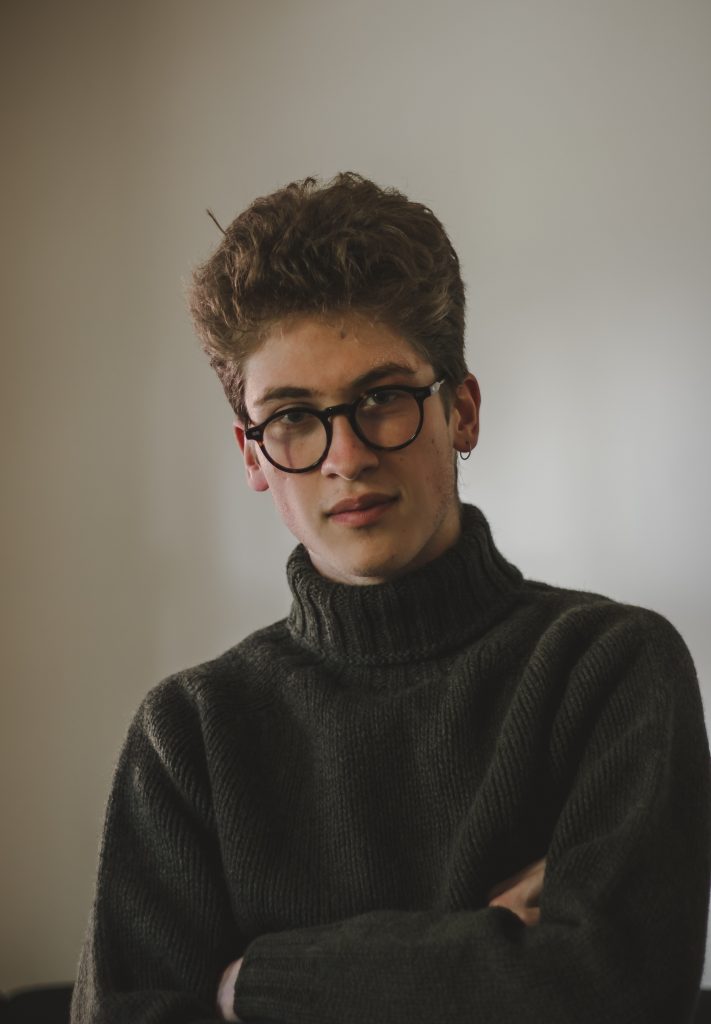
Name: Pierre Sarlieve (Current Student)
Hometown and Country: Strasbourg, France.
Degrees Completing at UBC Sciences Po: Political Humanities major at Sciences Po and Honours History with International Relations program at UBC.
Why did you choose to pursue the UBC Sciences Po Dual Degree?
Having dual citizenship in France and Canada, the dual degree was first and foremost an opportunity for me to study in two countries which I doubtlessly feel very much attached to. I knew in advance that the two institutions granted vastly differing pedagogical styles and was curious to get an experience in both worlds. For any high school student who feels unsure about the post-secondary path ahead of them, which was my case, I do believe that the program offers countless opportunities to test the waters before a possible graduate program or first full-time working experience.
Most importantly, I truly wanted an undergraduate experience focalized around a multiplicity of disciplinary approaches rather than immediately entering in a single field. Sciences Po offered a multidisciplinary preparation in the first two years of study which would be logically continued at UBC if the student wished to do so. Alternatively, the transition offers the immense freedom to specialize after two years of reflection, making this a truly rare and unique opportunity.
What are some of the highlights from your time at Sciences Po, and at UBC?
Coming from a scientifically oriented high school, Sciences Po was a complete change of atmosphere upon my arrival. I was instantly plunged in a world of students passionate about politics, constantly reading newspapers and willing to discuss it at cafes or restaurants after class. It truly felt like a stimulating intellectual experience where every encounter would bring something new and distinct from the other. In fact, my highlight at Sciences Po was taking part in challenging classes which were then further impassioned by my close friends who wished to pursue discussions outside of the classroom. This allowed me to grow academically while enlarging my perspectives to other frames of analysis that I would later integrate in my academic toolbox.
For UBC, my highlight has been the extensive freedom given to students in their choices of research topics and themes to consider in class, especially when taking an honours major. UBC genuinely allowed me to apply the fundamental training obtained at Sciences Po in my work, which made me feel more like an active student rather than a passive one listening to lectures. Effectively, I feel that I am now partaking in activities which most undergraduate students do not have the opportunity to accomplish, preparing more than ever for a graduate school program.
What were some of the challenges that you faced at Sciences Po, and at UBC?
Both schools brought their share of productive challenges. For Sciences Po, the first fundamental year compels students outside of their comfort zones by giving them a dense program with many classes to manage every semester. For most, this is an initial shock that can feel daunting after high school. Students may feel that a core fundamental curriculum is rigid and imposing at first, as everyone is expected to follow the fast-paced requirements of classes. For example, the frequent oral presentations students give in their classes are a difficult exercise which require thorough preparation and stress management. However, as one’s working capacities grow, they will find that it prepares them to become an active contributor to class discussions as well as a leader in the future endeavours they have after Sciences Po.
At UBC, the challenge will be to make the best of the transition. All of a sudden, students are placed in a more independent environment in which one can feel disoriented after Sciences Po. Classes demand much more independent research, active knowledge production in discussion sessions and for the student to bring in their own skillsets to every class. This is a tremendous opportunity but also a challenge as it can be easy to fall behind if one doesn’t seize it. The sheer amount of extra-curricular activities at UBC can also become overwhelming, although dual degree students are very qualified actors leading multiple activities in varying domains. Again, students are expected to become actors in their education which, in my opinion, is one of the strongest assets of the dual degree program.
How has being a UBC Sciences Po student helped your personal and professional aspirations?
As the student proceeds through the requirements of the program, it becomes increasingly clear that the dense amount of academic stimulation, the multiple extra-curricular opportunities present in both institutions and the fast-paced routine one follows forges a prodigiously sturdy foundation backing up the student’s work. Their work ethic will grow, their capacity to manage a plethora of demanding activities will mature and they will universally transition from a consumer to an active knowledge producer. Undoubtedly, such skillsets will serve the undergraduate student in any domain after the program, whether they choose to pursue a master’s degree or begin working right away. Furthermore, Sciences Po and UBC both offer many opportunities to lead projects, participate in unique internships and get involved in virtually any professional sector they are interested in. Students will find they are more than ready to excel in job interviews and present themselves as serious and capable actors in the fields they choose to pursue.
What extra-curricular activities are you involved in?
At Sciences Po, I participated actively in the media associations such as the Reims campus radio station and their newspaper, the Sundial Press. I enjoyed being able to practice my writing with opinion columns, engaging me further in the campus’ debates while, at the same time, animating the interview podcast, allowing me to meet top political and academic personalities in the recording studio. Furthermore, I was president of the Campus Ambassadors association which had the role to give tours of the campus to prospective students as well as distinguished guests of the institution. Having conducted research on the Ancient Jesuit College we studied in, I was likewise able to offer historical visits and create a partnership with the tourism office in Reims, an activity I found most stimulating.
At UBC, I joined the undergraduate history department’s academic journal as an editor in order to practice my editing skills as well as promote the knowledge production of undergraduate students by publishing some of the best papers of the department. This was an activity I pursued for principled reasons: it is a wonderful opportunity for students to see their works recognized and read outside of a classroom’s setting. Secondly, I prolonged my role as ambassador of my institution by joining UBC’s Alumni Center, the welcome hub of the campus, which also offers guided tours to visitors. This allows me to obtain professional experience through UBC’s WorkLearn program while continuing to exercise the activities I loved at Sciences Po.
What is unique about being a UBC Sciences Po student?
Although the program is small, I have found it most surprising how many opportunities the program offers in meeting new people and constantly evolving in a stimulating environment. I believe that the dual degree student is one who is well prepared to face the challenges of the working world while enjoying it due to the capacities they obtain as leaders. Ultimately, this is one of the main goals of any student: to find their place in the world and feel stimulated by whichever role they chose to pursue. A UBC Sciences Po student is most prepared to take on such endeavours due to their well-rounded profile, allowing them to reinvent themselves as often and as much as they wish to. Ultimately, they will be the actors able to create, design a project and apply it. It is a truly wonderful ability.
Name one thing on your bucket list.
Vancouver is probably the most beautiful city I have ever been to, considering we are surrounded by high mountains, forests and the ocean. In my final semesters here I wish to go on more hikes, especially around the high lakes suchlike Elfin or Wedgemount Lakes. Having these remarkably aesthetic natural parks so close to a major urban center is a luxury that cannot be overlooked once students arrive at UBC.
What’s next for you?
As I my interests have constantly evolved since my arrival in the program, I have become increasingly interested in pursuing research and joining academia. I hope to be admitted in a reputable graduate program in intellectual history, with the end goal of obtaining a PhD, to begin teaching and see my research published. Historians have a role to play in the public sphere by discussing a nation’s origin and contextualizing debates and societal issues in media or during conferences. I wish to develop into an actor in the transmission of knowledge that too often remains in academic circles along with raising awareness around historical topics which sometimes go undercover in contemporary concerns. Of course, a characteristic of the dual degree student is also to be surprised by opportunities they did not expect. Hence, this is only a project that time will either concretize or reinvent.
What is one quote that encapsulates your experience as a UBC Sciences Po student?
During the four years, time passes so fast you will truly understand how relative it is. Every week feels like it could take up a month but, once passed, flows by as if only a few hours had elapsed.
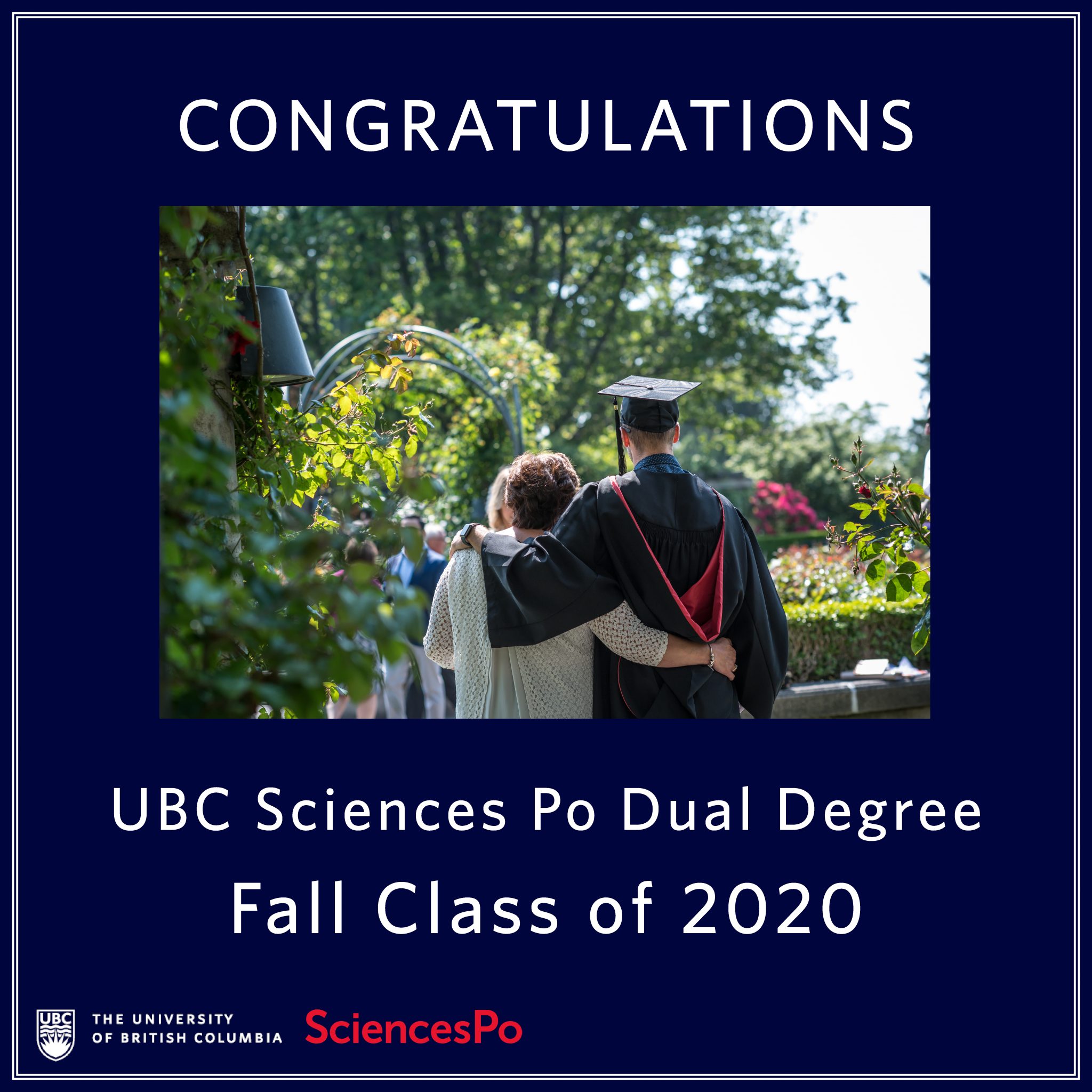
 Faculty of Art
Faculty of Art